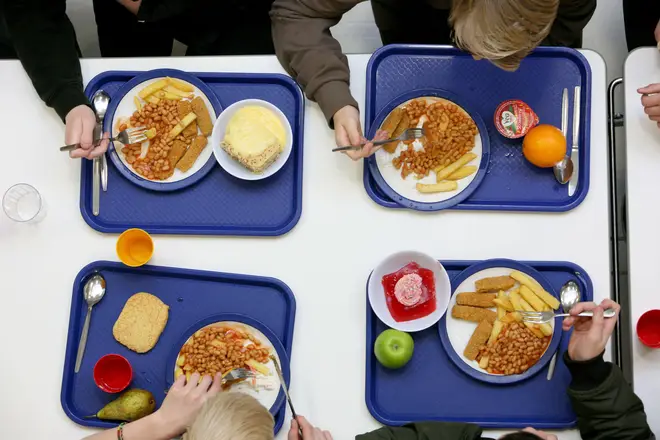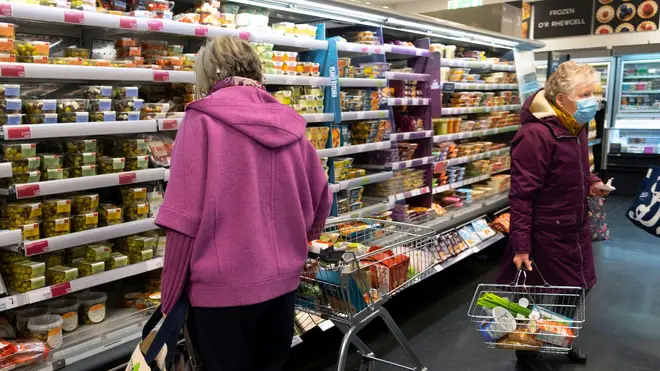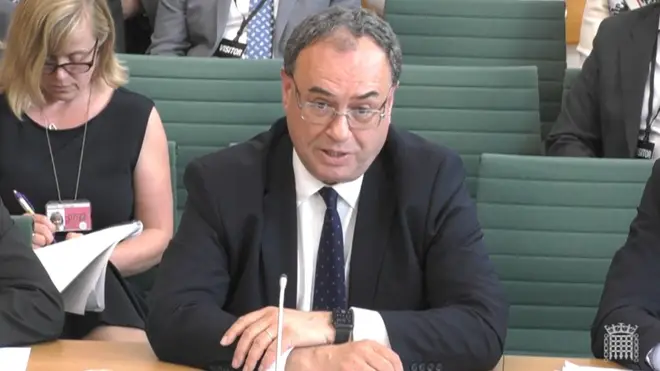
Paul Brand 10am - 12pm
17 May 2022, 20:46 | Updated: 17 May 2022, 20:53

Schools may have to reduce portion sizes for children's meals due to ratcheting costs, the boss of one of the UK's biggest food wholesalers has warned.
Andrew Selley, chief executive of Bidfood, said schools faced "difficult decisions" such as using cheaper ingredients to counter rapidly rising food prices.
"Either they are going to serve smaller portions or use cheaper ingredients, which is not going to be good for children,' he told BBC Radio 4's Today programme.
Mr Selley warned baked goods are currently up to 30 per cent more expensive due to rising wheat prices, which are also due to feed into pasta, eggs and chicken.
The price of sunflower oil has also "doubled against a year ago", after being pushed higher by the invasion of Ukraine, one of the world's biggest food oil exporters.
His comments came as the chairman of Marks & Spencer also warned that food prices could soar by as much as 10 per cent this year.
And yesterday the Governor of the Bank of England Andrew Bailey warned that households could witness an "apocalyptic" shock from rampant food inflation.
Read more: 'Don't ask for pay rises' Bank boss warns despite 'apocalyptic' food price rises

Archie Norman, who has chaired M&S since 2017 and was previously the boss of Asda, said food prices would increase further during the rest of the year.
"It's very negative for consumer discretionary income but it's perhaps not apocalyptic," he told the BBC.
"It wouldn't be surprising to see food price inflation over the course of the year running towards 8 per cent to 10 per cent.
"But we don't know that yet because it runs through the year - some has run through now but there is quite a lot still to come."
Analysts have predicted that overall inflation could rise sharply to 9.1 per cent for April, when the latest official data is given by the Office for National Statistics (ONS) on Wednesday.
The ONS reported 5.9 per cent food inflation in March and this is expected to have accelerated last month.
Mr Bailey warned yesterday that he felt "helpless" as he defended the bank of England's monetary policy despite households being battered by soaring inflation.
But the governor, who earns £570,000 a year, doubled down on his claim that workers should not be demanding big pay rises.
He told MPs that big earners should 'think and reflect' before asking for large salary increases to help curb rising inflation.
Read more: 'Don't ask for a big pay rise': Fury at message from 500k Bank boss to struggling Brits

Meanwhile Mr Norman, who was also previously a Conservative MP, said grocers have had to pass some cost inflation on to customers but said spending has been bolstered by customers' savings built up during the pandemic.
Mr Norman said: "What's happening is global prices are rising, it's not to do with UK food so much as the effect of freight costs, wheat prices, oil and energy prices knocking on to almost everything.
"As a consequence, all food retailers in the UK are, because we operate on very thin margins, going to have to reluctantly allow some food price inflation to run through the system.
"At the moment, UK spending is pretty good because customers still have quite a lot of stored-up savings.
"The crunch is not going to be now, it is going to be in the autumn after people have come back from their holidays, spent their money and there is nothing left in the kitty."
Read more: Martin Lewis 'loses rag' as he blasts energy price cap changes as 'f***ing disgrace'